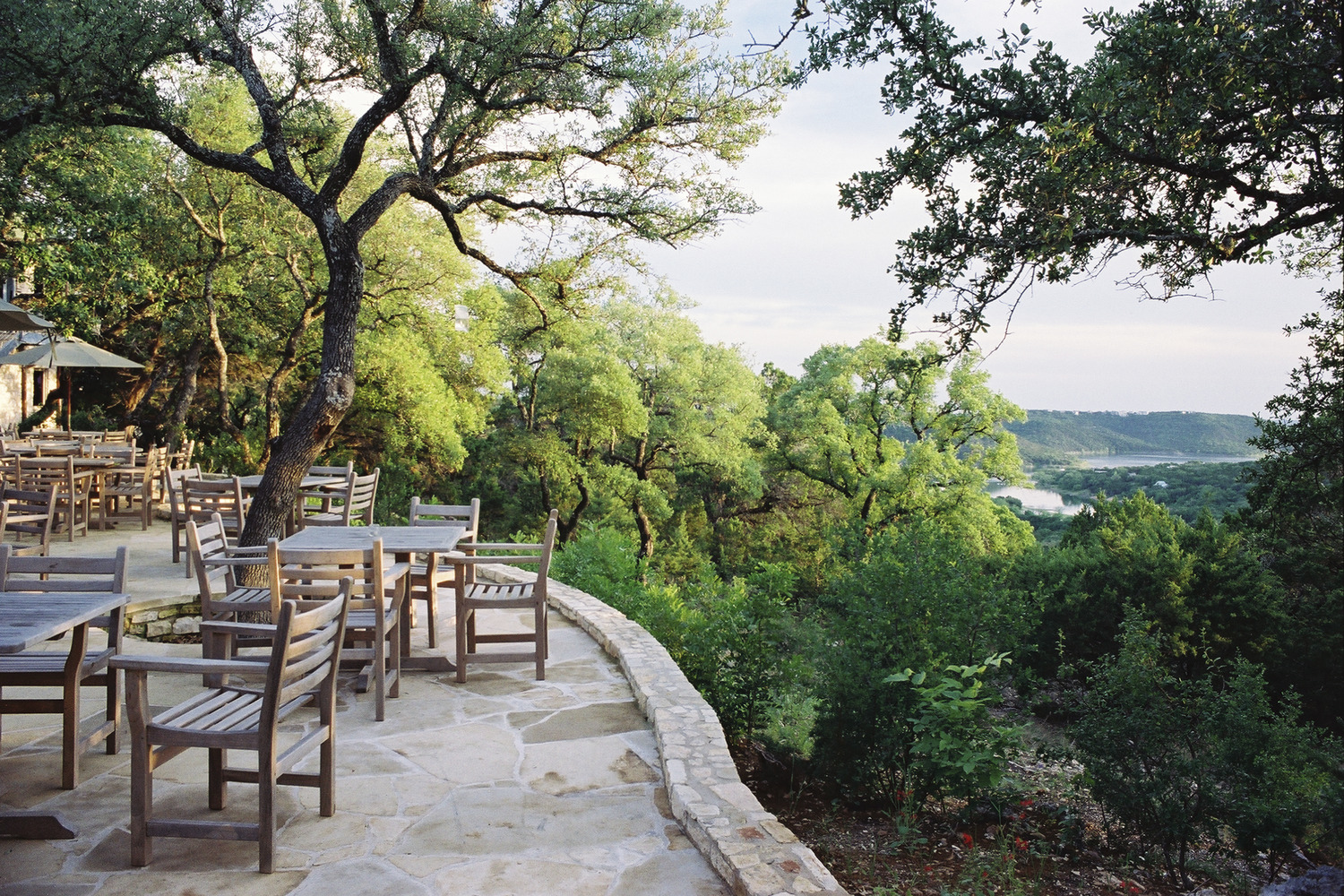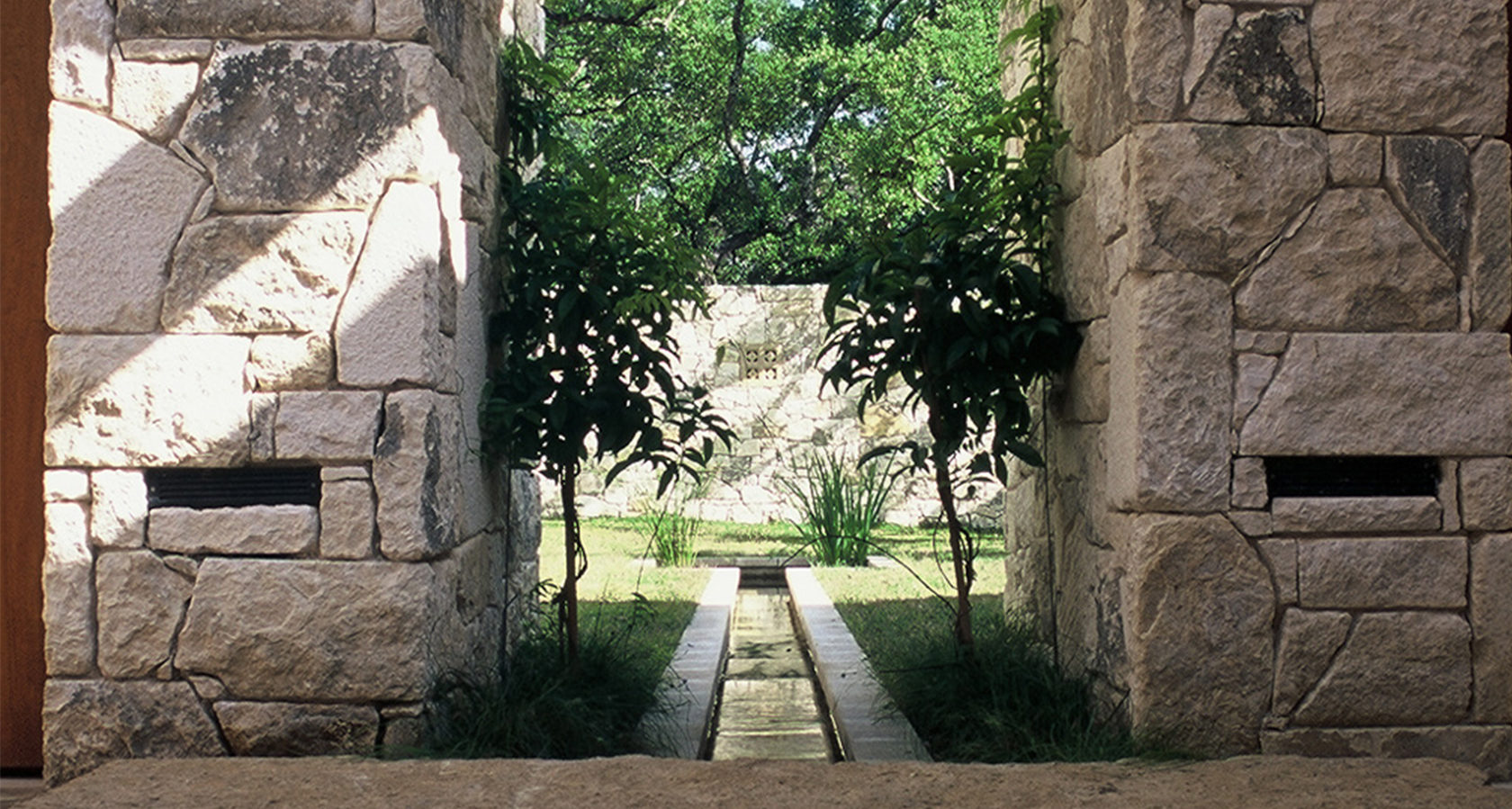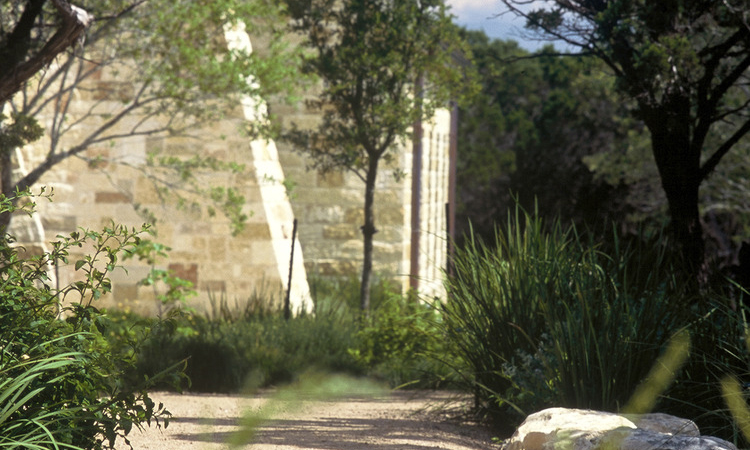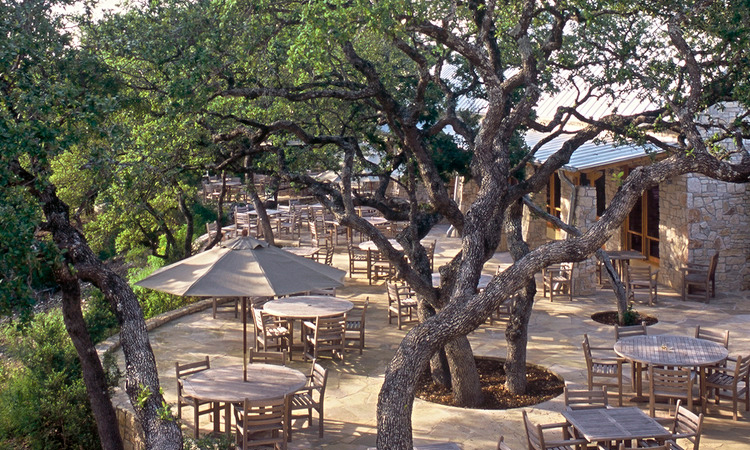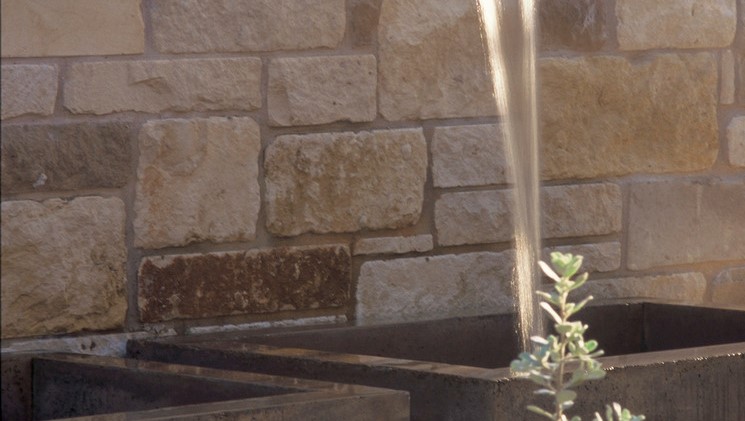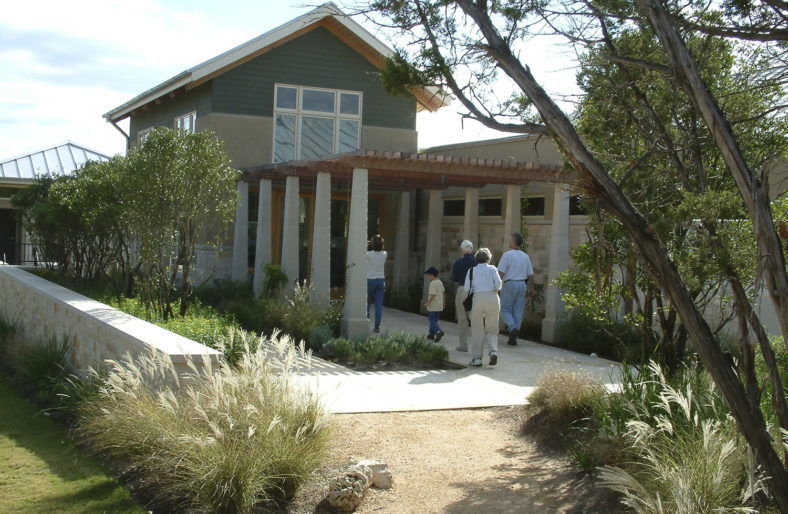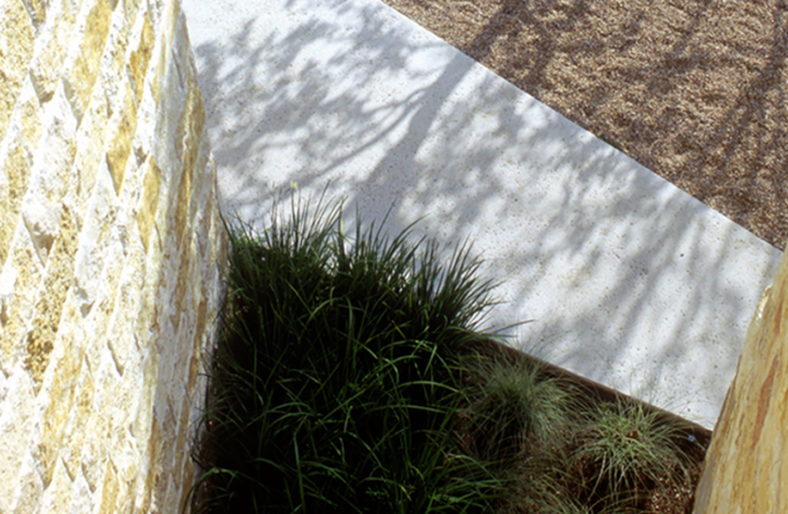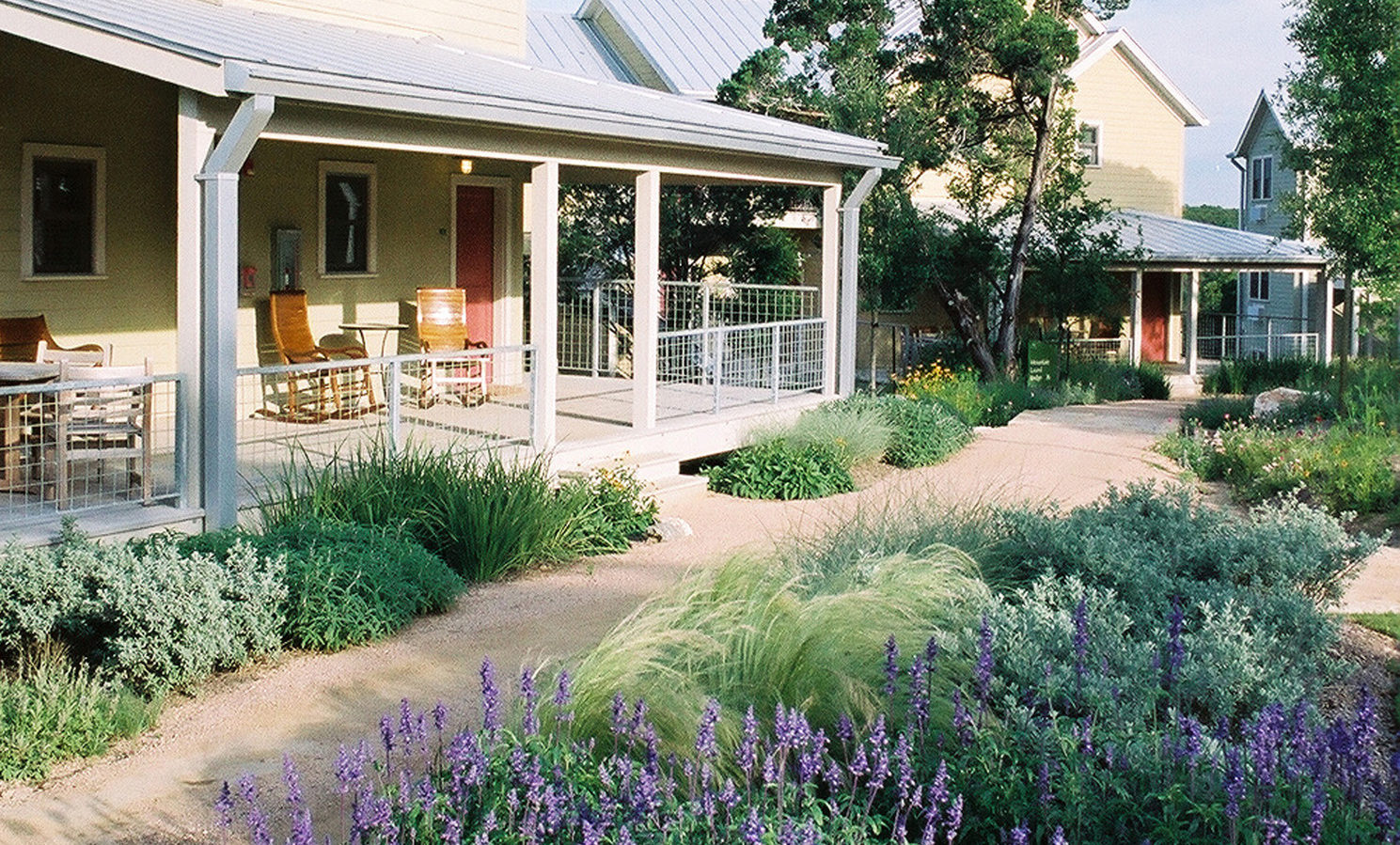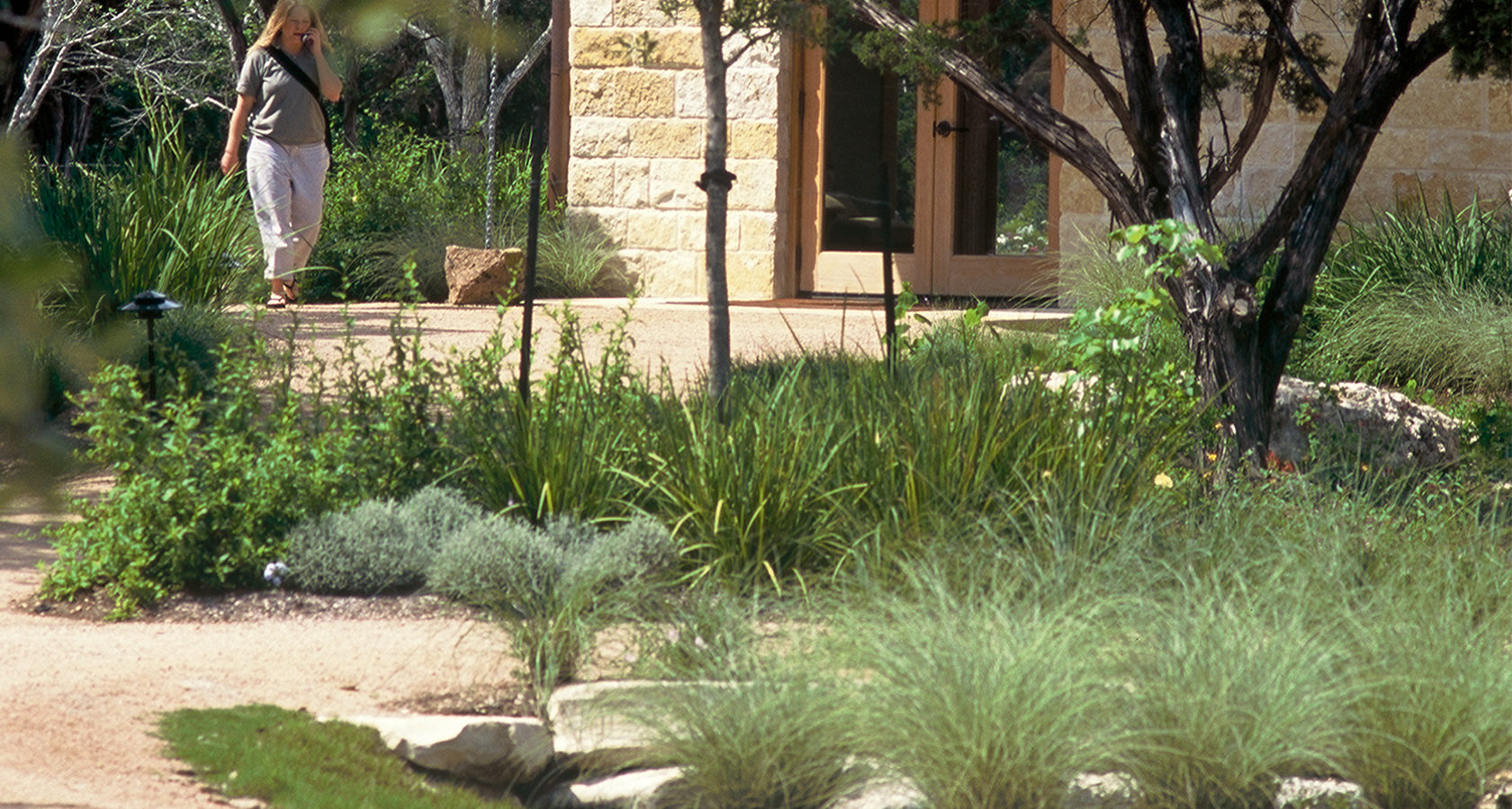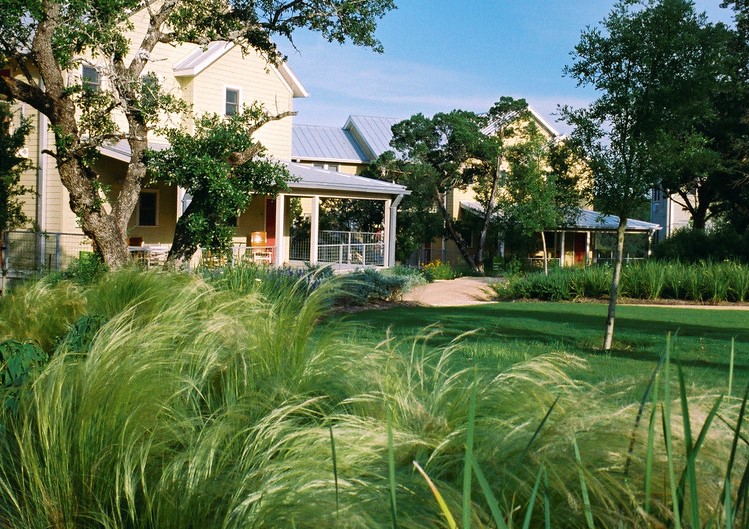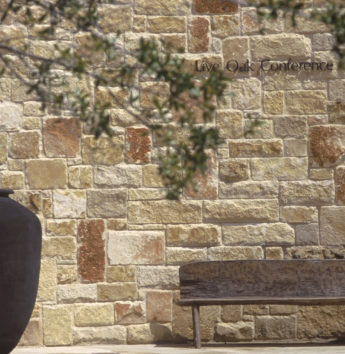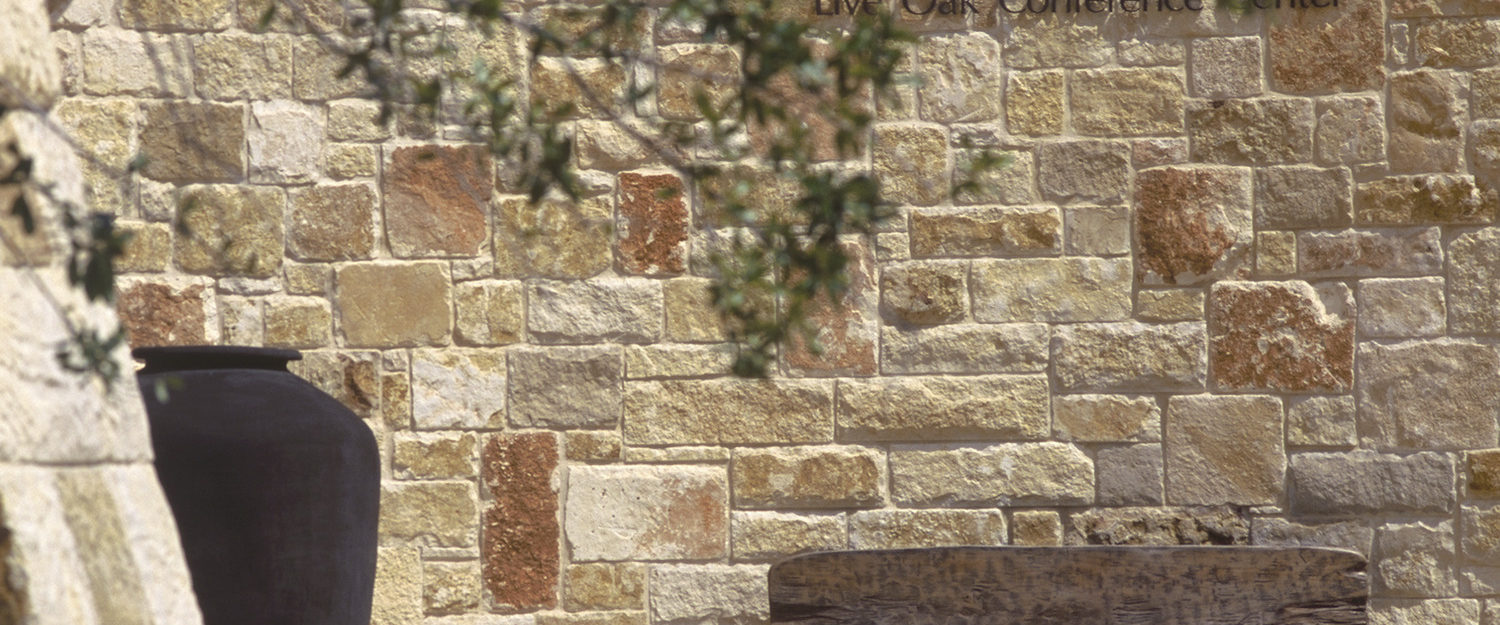Located on 210 acres of fragile land in the Texas Hill Country, The Crossings takes its cues from the natural features of the spectacular site. Permeable paving is carefully inserted across the site to maximize the amount of rainfall that percolates through to the Edwards Aquifer. Both rainwater and effluent are harvested on-site to feed the irrigation system. More manicured gardens close to the visitor center are transitioned to large swaths of native or drought tolerant material along natural outcroppings.
The destination spa and wellness center overlooking beautiful Lake Travis is meant to be a quiet built moment in the natural landscape. 70 guest rooms are distributed across eight small-scale lodges, giving the campus the feeling of a quiet sanctuary where health and wellness is found.
